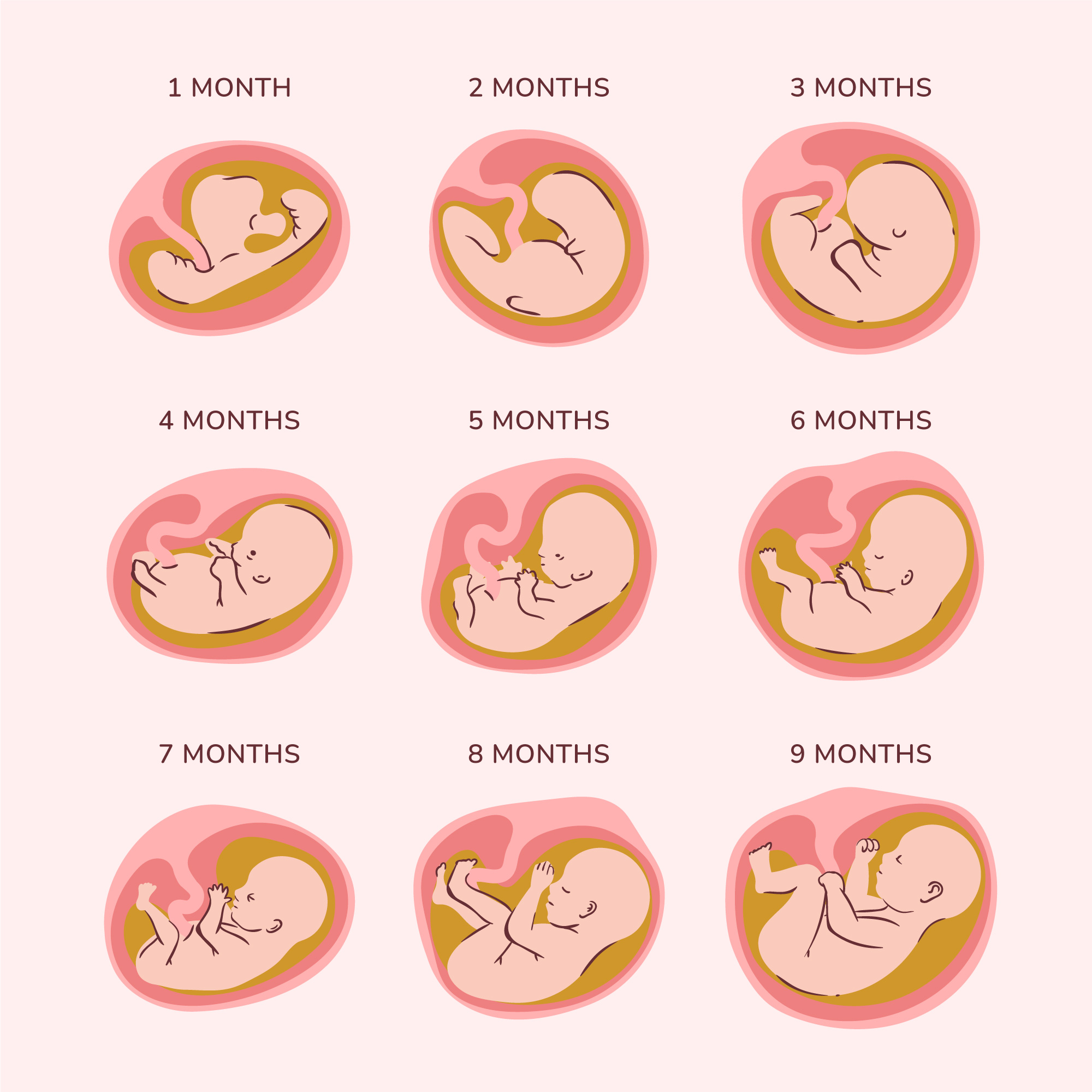Introduction
Congratulations! If you’re 10 weeks pregnant, you’ve entered a crucial stage of your pregnancy. While you may still be feeling early pregnancy symptoms like fatigue or nausea, many changes are happening inside your body—some invisible but vital for you and your baby.
At this stage, your body is working overtime, from hormonal surges to subtle organ adjustments. Understanding what’s happening can help you feel more in control, less anxious, and more connected to your pregnancy journey. For more tips on navigating early pregnancy, check out aPregnantMe.com.
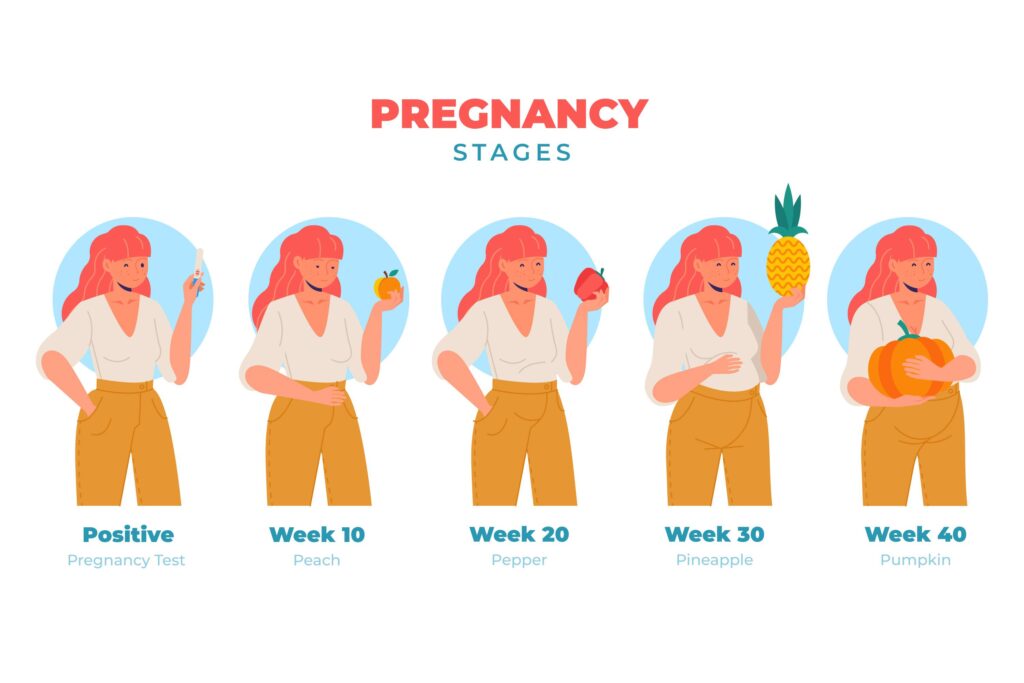
Hormonal Overdrive: What’s Really Going On
At 10 weeks pregnant, your body is in full hormonal overdrive. Pregnancy hormones are working around the clock to support your baby’s development and prepare your body for the changes ahead. The main players include hCG (human chorionic gonadotropin), progesterone, and estrogen.
hCG is the hormone most commonly associated with early pregnancy. It’s responsible for many early pregnancy symptoms like nausea and fatigue. Around 10 weeks pregnant, hCG levels often peak, which is why some women notice that morning sickness reaches its strongest point right now.
Progesterone is another crucial hormone. It helps maintain the uterine lining and prevents contractions in early pregnancy. However, progesterone can also slow down your digestive system, which may lead to bloating, constipation, or gas.
Estrogen supports the growth of your baby and your placenta, while also increasing blood flow and supporting your mood. But it can also contribute to tender breasts, heightened senses, and even skin changes.
Together, these hormones create a whirlwind of physical and emotional changes. While it can feel overwhelming, it’s important to remember that every twinge, mood swing, or wave of fatigue is part of your body’s natural process of supporting your developing baby.
Your Baby at 10 Weeks—Tiny but Transformational
At 10 weeks pregnant, your baby is officially called a fetus, marking the end of the embryonic stage. Even though your little one is only about 1.2 inches long—roughly the size of a prune—so much is happening inside.
This week, your baby’s facial features are becoming more defined. Tiny eyelids, ears, and even the beginnings of a nose and mouth are forming. Meanwhile, the arms and legs continue to grow, and tiny fingers and toes are now distinguishable, sometimes even starting to show slight movement, although you won’t feel it yet.
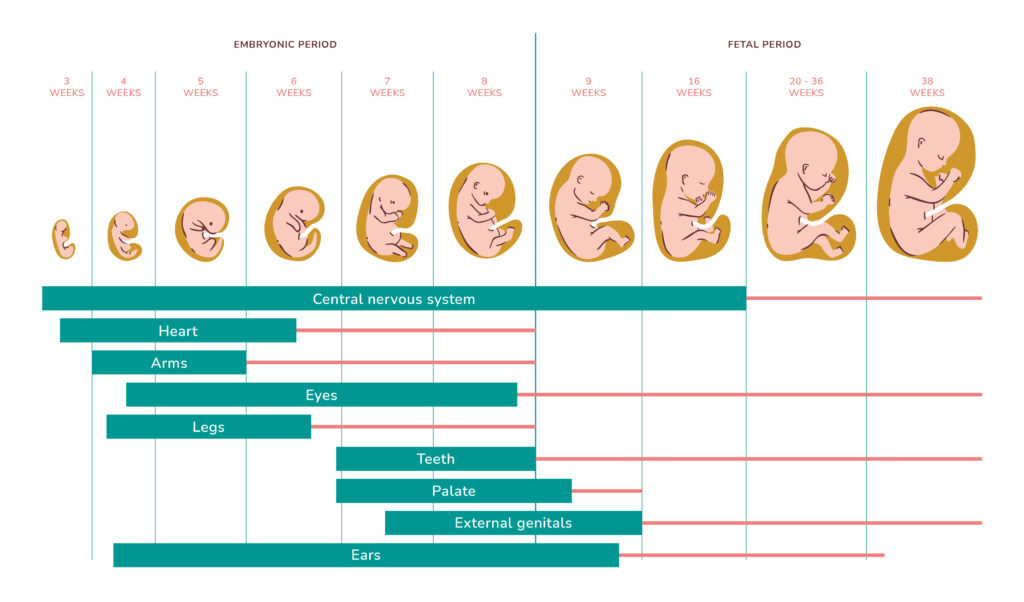
Internally, the major organs are developing rapidly. The liver is producing red blood cells, the kidneys are starting to function, and the intestines are forming. Even the brain is busy growing, with critical neural connections being established.
Another fascinating development is the formation of the heart valves. By 10 weeks pregnant, your baby’s heart is fully formed and beating steadily, pumping blood through a tiny but increasingly complex circulatory system.
While your baby may seem tiny, the changes happening inside are monumental. Each growth milestone this week lays the foundation for healthy development in the weeks to come.
Physical Symptoms That May Surprise You
When you’re 10 weeks pregnant, you might notice physical changes that feel new or unexpected. While some symptoms are well-known, others can catch you off guard. Here are the most common ones:
1. Fatigue
You may feel more tired than usual. This is largely due to hormonal changes, especially the rise in progesterone, which can make you feel sleepy throughout the day.
2. Nausea and Food Sensitivities
Morning sickness may still be in full swing at 10 weeks pregnant. Certain smells or tastes can trigger nausea, and you may notice strong food aversions or sudden cravings.
3. Breast Changes
Your breasts may be fuller, tender, or even slightly itchy. Veins can become more visible as your blood volume increases to support your baby.
4. Bloating and Digestive Changes
Your digestive system slows down because of progesterone, leading to bloating, gas, or constipation. Eating smaller, more frequent meals can help alleviate discomfort.
5. Increased Urination
Your growing uterus begins to press on your bladder, and combined with increased blood volume, it can make you feel the need to pee more often.
6. Mild Cramping or Twinges
Some women experience mild cramping as the uterus grows. While it’s usually normal, any severe pain should be discussed with your doctor.
These symptoms can vary in intensity from person to person, but understanding that they are all normal parts of being 10 weeks pregnant can help you feel more at ease and better prepared for the weeks ahead.
The Silent Work: Internal Organ Adjustments
Even if your baby bump isn’t very visible yet, your body is already going through major internal changes at 10 weeks pregnant. Many of these shifts happen quietly and aren’t obvious from the outside — but they play a vital role in supporting your pregnancy.
1. Uterus Expansion
Your uterus is growing quickly and is now about the size of a small orange. It’s beginning to rise slightly out of your pelvic area, making more room for your developing baby.
2. Increased Blood Volume
By 10 weeks pregnant, your blood volume has already started increasing to deliver oxygen and nutrients to your baby. This extra blood supports the placenta and prepares your body for the months ahead.
3. Heart and Circulation Changes
Your heart is working harder than usual to pump this additional blood. You might feel slightly warmer, flushed, or more tired because of the extra workload.
4. Digestive System Slowdown
Progesterone relaxes smooth muscles, including those in your digestive tract. This slowdown can lead to bloating, constipation, or acidity — even if you’re eating normally.
5. Ligament Stretching
As your uterus grows, the ligaments around your abdomen gently stretch. Some women feel this as mild pulling or twinges, especially when changing positions.
These behind-the-scenes changes are your body’s way of preparing for continued growth. Even if you don’t see much externally yet, your body is already working like a powerhouse at 10 weeks pregnant.
Emotional Rollercoaster: It’s Not Just in Your Head
If you’re 10 weeks pregnant and finding yourself laughing one moment and tearing up the next, you’re not alone. Emotional ups and downs are extremely common at this stage, and there are real physical reasons behind them.
1. Hormones Are Driving Your Mood
Estrogen and progesterone are fluctuating rapidly right now. These hormonal changes can affect the parts of the brain that regulate emotions, leading to mood swings even when nothing stressful is happening.
2. Fatigue and Nausea Affect Your Feelings
When you’re tired, queasy, or not sleeping well, your emotional tolerance naturally decreases. Feeling overwhelmed is completely normal when your body is working overtime.
3. Excitement Mixed With Anxiety
At 10 weeks pregnant, your pregnancy is becoming more real. You might be thinking about the future, doctor visits, finances, or sharing the news. This emotional mix of joy and uncertainty is very common.
4. Increased Sensitivity
Many women report being more sensitive to comments, sounds, and even small inconveniences. This is often tied to hormonal changes and heightened awareness.
5. Mental Fog or Forgetfulness
You might feel a little scatterbrained or distracted. “Pregnancy brain” is real and often starts around this time.
The Good News:
These emotional changes usually settle down as you move into the second trimester. Being kind to yourself, talking to someone you trust, and resting when needed can make a big difference.
What You Can Do to Support Your Body Right Now
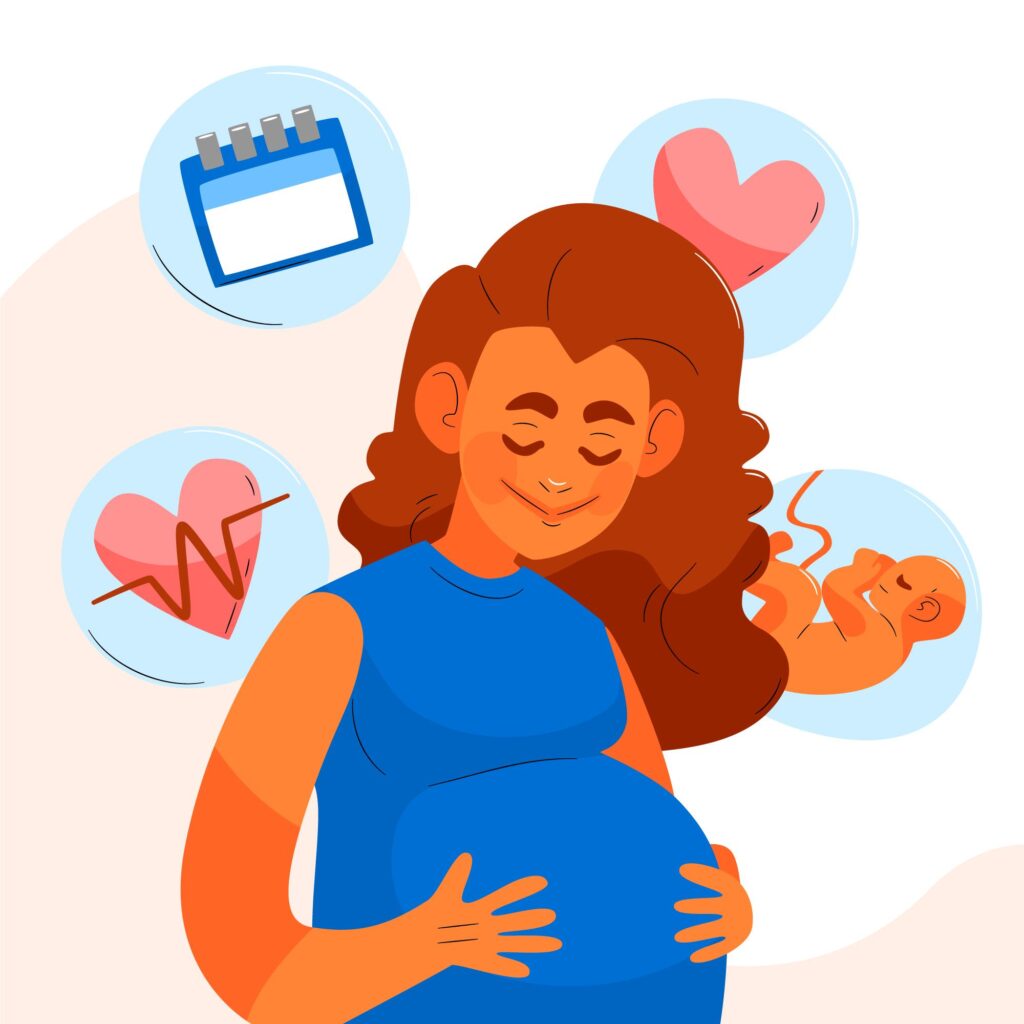
At 10 weeks pregnant, your body is doing a tremendous amount of work behind the scenes. Supporting yourself with healthy habits can make this phase more comfortable and help you feel more in control.
Here are some friendly and practical ways to take care of yourself right now:
1. Eat Small, Frequent Meals
If nausea or bloating is an issue, mini-meals throughout the day can help. Opt for light, nutrient-rich foods like fruits, whole grains, Greek yogurt, eggs, nuts, and soups.
2. Stay Hydrated
Water supports increased blood volume, digestion, and amniotic fluid. Aim for 8–10 glasses a day, and consider adding lemon or cucumber if plain water feels unappealing.
3. Rest When You Need To
Fatigue is very common at 10 weeks pregnant. Short naps, early nights, and gentle rest breaks during the day can make a huge difference in how you feel.
4. Continue Prenatal Vitamins
Your baby needs minerals like folic acid, iron, and DHA for healthy development. Keep taking your prenatal vitamins every day as recommended by your doctor.
5. Gentle Exercise
Activities like walking, prenatal yoga, and stretching can reduce stress, alleviate bloating, and promote better sleep. Always listen to your body and rest as needed.
6. Manage Stress Thoughtfully
Relaxation techniques such as meditation, breathing exercises, journaling, or simply going for a walk can calm your mind and balance your mood.
7. Wear Comfortable Clothing
Even if there’s no visible bump yet, bloating or breast tenderness can make tight clothes uncomfortable. Soft fabrics and stretchy waistbands are your friends!
8. Listen to Your Body
If you’re tired, rest. If you’re hungry, eat. Pregnancy is not the time to push yourself beyond what feels comfortable.
Caring for your body now helps both you and your baby thrive as you move deeper into the first trimester.
When to Seek Advice From a Doctor
Always trust your instincts. While most symptoms are normal, contact your doctor right away if you experience:
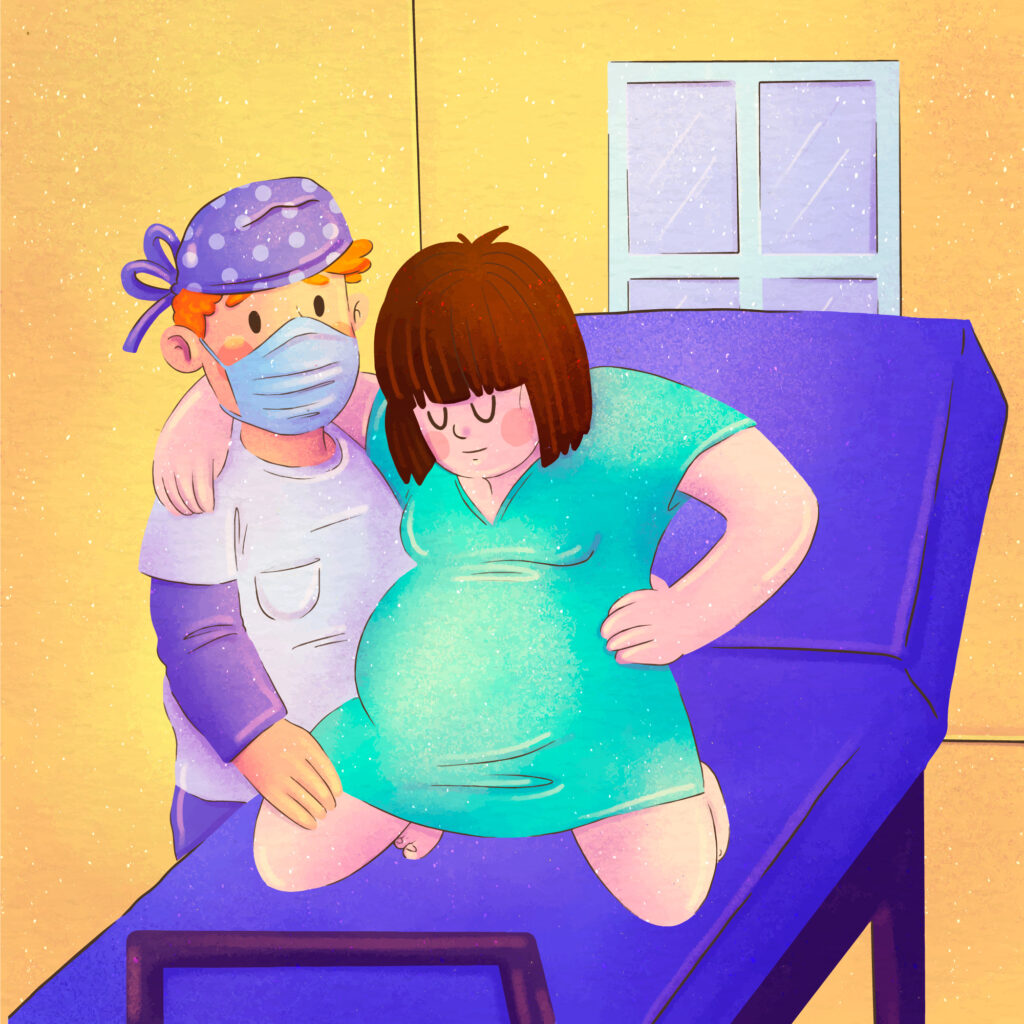
Most symptoms at 10 weeks pregnant are completely normal, even if they’re uncomfortable or surprising. However, it’s important to know when something might need medical attention so you can feel confident and safe.
Here are some signs that you should contact your healthcare provider:
1. Heavy Bleeding or Bright Red Spotting
Light spotting can be normal, but bleeding that’s similar to a period or accompanied by pain should be checked right away.
2. Severe or Persistent Abdominal Pain
Mild cramping can happen as the uterus grows, but sharp or intense pain is not typical and should be evaluated.
3. Unusual Discharge with Odor or Itching
Changes in discharge are common, but if there’s a strong smell, unusual color, or itching, it could indicate infection.
4. Fever Above 100.4°F (38°C)
Any fever during pregnancy should be discussed with your doctor, as infections can be harmful if untreated.
5. Severe Dehydration from Nausea/Vomiting
If you’re unable to keep any food or fluids down, you may need medical support to avoid dehydration.
6. Dizziness or Fainting
This could be caused by low blood pressure, low blood sugar, or dehydration, and it’s worth getting checked.
7. Sudden Swelling or Vision Changes
These could be early signs of complications and should never be ignored.
Remember:
It’s always okay to call your doctor, even if you’re unsure whether something is serious. Peace of mind matters, especially at 10 weeks pregnant. Trusting your instincts and asking questions is part of taking care of yourself and your baby.
Conclusion
At 10 weeks pregnant, so much is happening inside your body—even if most of it is invisible from the outside. From your baby’s tiny features forming to the rise and fall of hormones, this stage is a beautiful mix of transformation, curiosity, and adjustment.
Here’s what to keep in mind:
- Your baby is growing rapidly, developing vital organs, fingers, toes, and even facial expressions.
- Your body is working hard, which explains the fatigue, mood shifts, nausea, and breast changes.
- Emotions may feel intense, and that’s completely normal—your hormones are in full swing.
- Healthy habits make a difference—rest, nutrition, hydration, and stress management all support you and your little one.
- You’re not alone—millions of women experience these same changes, and help is always available.
Every week brings something new, and reaching the 10-week milestone means you’re getting closer to the second trimester—a stage many women find more comfortable and exciting.
Take it one day at a time, be kind to your body, and celebrate the amazing journey you’re on. You’re growing a whole new life, and that’s nothing short of extraordinary.
“At 10 weeks pregnant, your body and baby are undergoing amazing changes. From rapid fetal development to hormonal shifts, this stage is full of surprises. Remember to rest, nourish yourself, and embrace these first trimester experiences. For more tips and support, visit aPregnantMe.com. Enjoy this special journey and celebrate every milestone along the way!”

